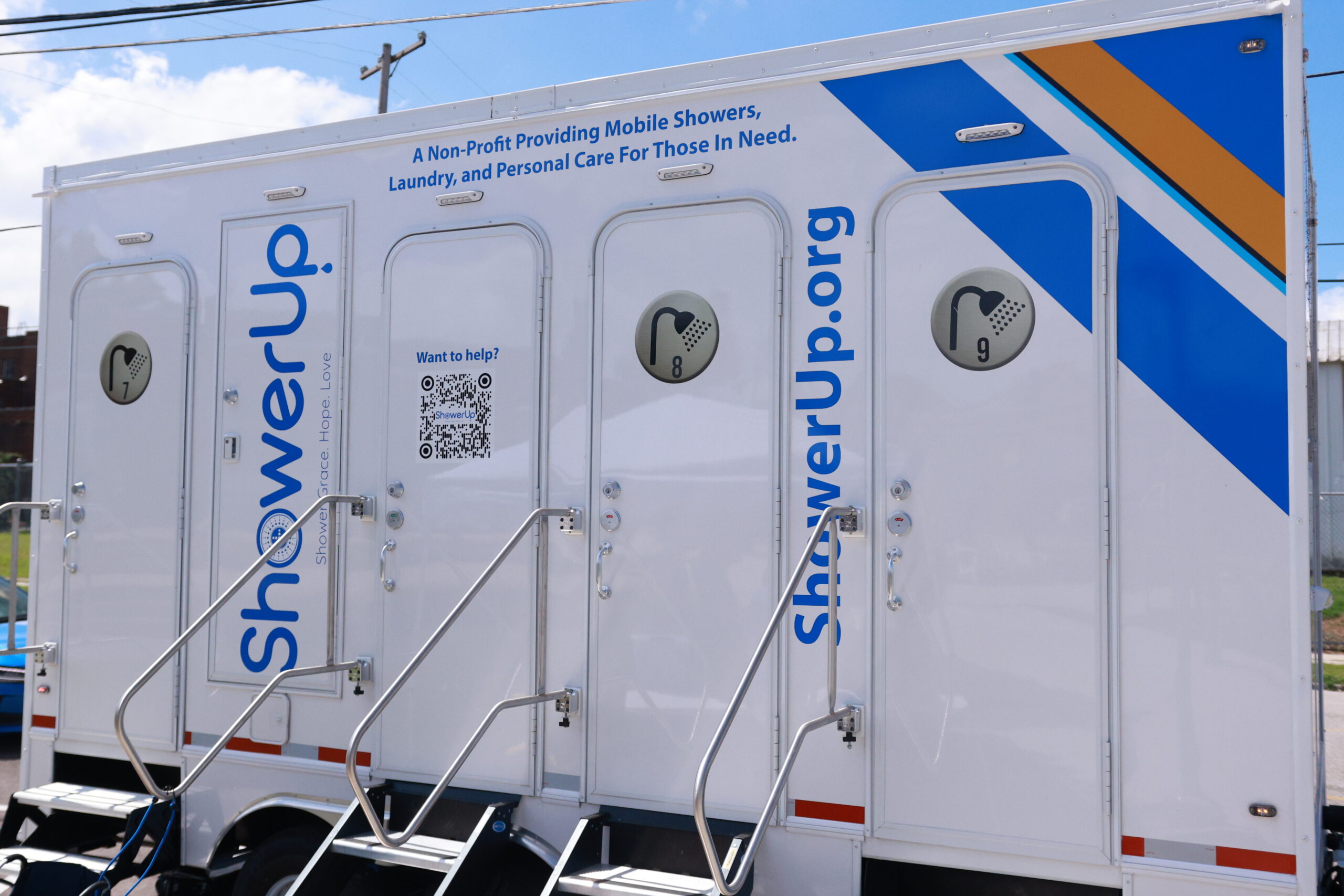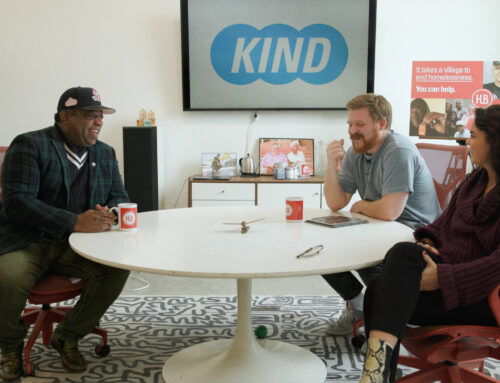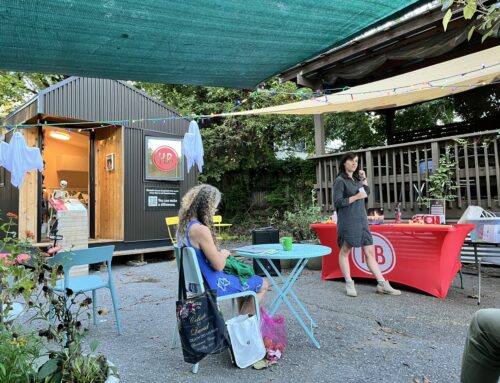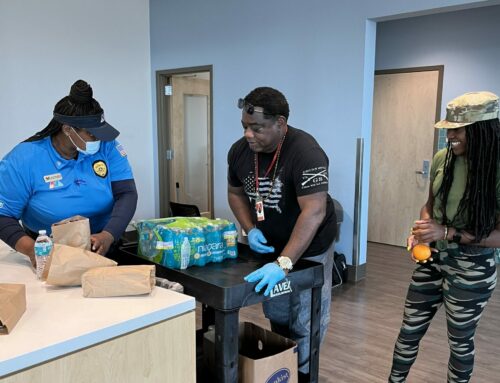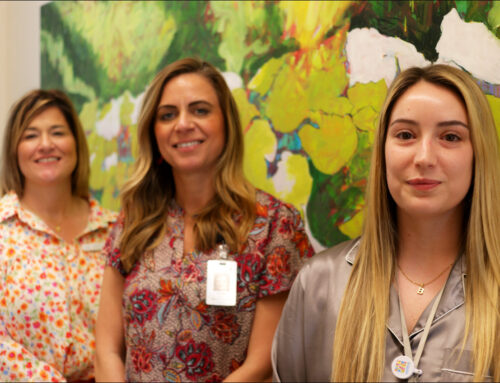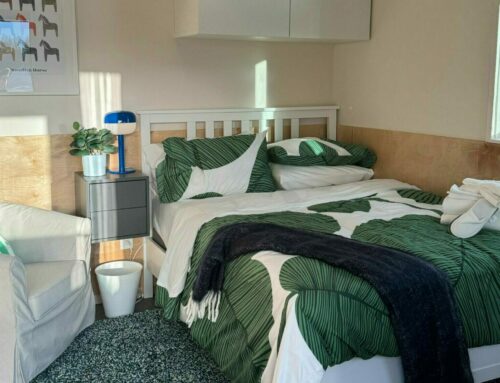Starting your day with a sudsy jolt or winding down in the evening with a steam-filled shower are ideal and often anticipated parts of a daily routine. Cleanliness and hygiene are expected components of American society – and a person’s inability to regularly bathe can nearly instantaneously single them out as other or different. Inaccessible restrooms and shower facilities are a near-constant issue for people experiencing homelessness, but it’s something we don’t often discuss.
A facility crisis.
Access to a safe, clean place to use a bathroom and wash your hands is a basic human need. But in American cities, public restrooms are declining in number and quality. Since 2020, the number of public restrooms per 100,000 residents in a metropolitan area has dropped to eight. The landscape is worse in Memphis, where the most recent metrics suggest two publicly available toilets for every 100,000 residents. People experiencing homelessness are often barred from using washrooms in businesses, facing blatant discrimination and humiliation for seeking essential resources for bodily wellness. This leads them to seek bathrooms that are openly accessible and often neglected, creating unsafe and unsanitary conditions to wash and relieve themselves.
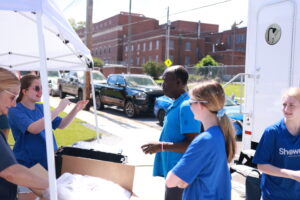 More than getting clean.
More than getting clean.
Access to fresh water and showers is critical for individual and community well-being. Inadequate sanitation and handwashing contribute to dozens of preventable, communicable diseases that can spread among communities of people without adequate housing. Infrequent bathing is also associated with skin infections and vector-borne illnesses from lice, mites and fleas. If a person receives care for a medical ailment – a wound, infection, rash or otherwise – proper care and washing are critical for healing. Without access to a shower or clean washing facilities, reinfection is common, taxing emergency room and urgent health care facilities.
While what we’ve shared to this point might lead you to believe people experiencing homelessness are not showering, the limited data we have from Americans experiencing homelessness says otherwise. A study among people who identified as homeless in Boston found that nearly 75% of respondents reported that they showered daily. But many of them noted the sacrifices they made to bathe. The majority of people in the study showered in a communal shelter, where some reported they felt unsafe, or that the conditions were inadequate for truly getting clean. This is supported by a National Institute of Health study that found many MRSA infections among people experiencing homelessness came from inadequately maintained public shower facilities. Other respondents in Boston opted to shower at a friend’s or relative’s home, with more than one saying that they chose to leverage contentious relationships because it meant they could more readily bathe. While not everyone associates personal sacrifice with showering, it’s evident that people may choose unsafe, unclean situations if it means they retain access to essential resources like a place to wash.
Beyond health and personal safety, inaccessible washing facilities contribute tremendously to a person’s ability to secure meaningful work. A 2020 survey of job recruiters noted that inadequate hygiene was one of the top four disqualifiers for job candidates – with 46% of recruiters noting poor hygiene as cause for immediate removal from the candidate pool. While a person may be able to secure a shower before a single interview, once hired, their ability to retain a job could be compromised if they don’t have regular access to bathing resources. Following the COVID-19 pandemic, many companies are tightening policies around employee sanitation and the workforce to protect the communal health of the workplace.
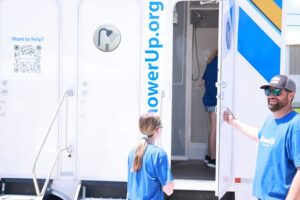 Access to hygiene is dignifying.
Access to hygiene is dignifying.
Sanitation is a critical part of our work at the Hospitality Hub. The Hub offers clean, private bathrooms to guests on our campus. Additionally, our residential guests at Hub Hotel, Hub Hall, and Hub Studios have access to showers and toilets that are regularly cleaned and sanitized to ensure they promote health and relaxation. The relief that comes with being able to bathe regularly with soap, hot running water and a door you can lock is immeasurable. For people in our community who have not yet engaged with our services, we are excited to announce a new collaboration with ShowerUp out of Nashville. This like-minded nonprofit organization approached us earlier this year with the idea of bringing a mobile shower unit to Memphis. Our shared values and role as a connector in the communitymade the collaboration a clear next step. ShowerUp recognizes the same realities we do – that dignifying facilities and an emphasis on a person’s humanity are essential needs that are critical in creating pathways to stable housing.

